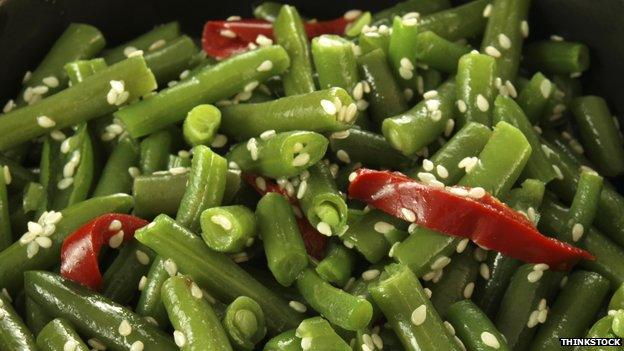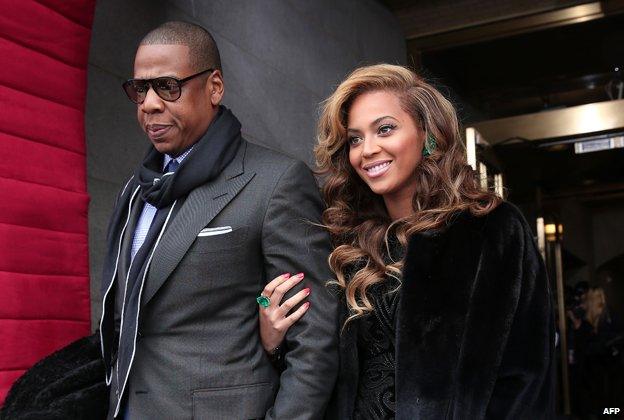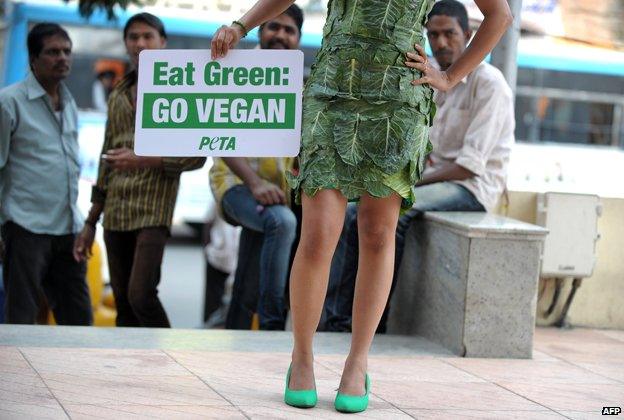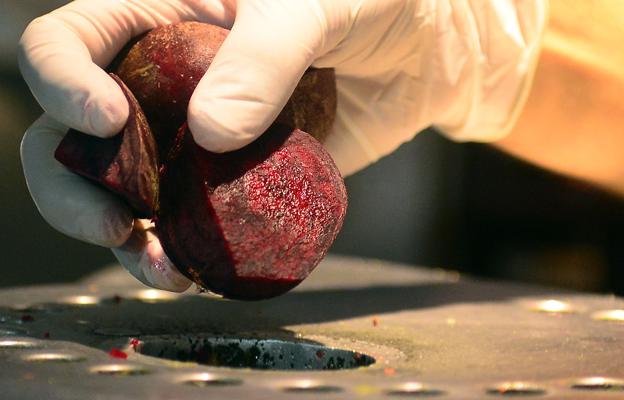The rise of the part-time vegans
- Published

Once veganism was widely associated with animal rights activists, the health conscious and the religious. But now more and more people are dabbling with a vegan diet, albeit temporarily. Why?
To a committed carnivore, adopting a vegan diet - no meat, no fish, no dairy, no eggs - sounds like a dramatic step.
But a growing trend for giving up all animal products doesn't involve going vegan forever. Nor does it even require being morally opposed to eating meat.
In fact, it might only last a matter of weeks.
More people are pledging to go vegan for seven or 30 days, according to the Vegan Society. There were 40% more people signing up to this temporary menu in the first two months of 2013 compared with the same period in 2012, it says.
Most famously singer Beyonce and her rapper husband Jay-Z went vegan for 22 days, external as part of a "spiritual and physical cleanse".

And this year a new campaign - Veganuary - has already seen 3,200 people commit to go vegan for the first month of 2014, organisers say.
Many of these part-time vegans aren't against eating animal products in principle. But they might have taken inspiration from well-known figures who have adopted the vegan lifestyle full-time, such as Oscar-winning film director James Cameron, former US president Bill Clinton and Microsoft founder Bill Gates.
There are also 150,000 full-time vegans in the UK - so about one in 400 - according to the Vegan Society. The ratio goes up to roughly one in 150 in the US, according to the Vegetarian Resource Group, which puts the total figure at two million. Like vegetarians, they don't eat meat, poultry, fish or by-products of slaughter - vegans don't eat eggs and dairy products either.
But it's those who dabble in the diet rather than follow it full-time who are coming to prominence like never before.
Each temporary vegan might have very different motivations. Some might seek to shed the signs of Christmas indulgence, others might see it as a good way to detox.
According to Juliet Gellatley, director of the vegan and vegetarian group Viva, it mostly comes down to two main reasons - health concerns, and greater awareness about how animals are treated.
"People might be prone to heart disease or want to get their cholesterol down," she says. "Or it might be because they've seen something on factory farming. But once people turn to veganism, they usually open their minds to the other issue too.
"The third factor, which is more unusual, is environmental reasons such as global warning or deforestation," she says.
It's a tale that rings true with young professional Rachel Hollos, a global marketing director from London. She says her main motivation for going vegan for a month was the health benefits.
"I have read a lot of articles about how we don't really need dairy products and how cow's milk contains lots of hormones, which puts our own hormones out of sync," she says.
Publicity surrounding a PETA investigation into angora farms also got her thinking.

Rachel says the vegan diet "differs substantially" to her normal diet, which typically includes lots of fish, eggs, goats milk and yogurt. The switch has been easy during the week - when she's able to cook meals at home and prepare packed lunches - but difficult when eating out at weekends.
"I definitely feel like I've got more energy and feel less bloated, but I also feel very hungry most of the time."
Advocates for the diet insist this latter sensation is not what veganism is about. Gellatley says hunger is easy to avoid if new vegans plan their meals carefully. Porridge, pulses, lentils and beans all help keep the stomach feeling full, she says.
Someone whose belly hasn't been rumbling is 32-year-old Luke Graham from Cardiff, despite burning lots of energy in his job as a personal trainer. He says his motivation to sign up to Veganuary was "half ethics and health, and half experiment".
A vegan diet is all about planning, he says. "I used to put a slab of meat and veg under the grill most nights. Now my cupboard is full of pulses, which has taken some adjustment," he says.
So far Luke is finding his energy levels are fine, unlike when he tried going vegan about 10 years ago, which he says "made him look like a 12-year-old boy".
"I need to be strong and in good shape for my job and I was worried going vegan was contrary to this. Last time I tried it, I didn't really understand much about nutrition. Now writing nutrition plans are part of my job," he says.
Viva's Gellatley says there's been a shift in attitude when it comes to men going vegan. "Before many would say there's no way they'd give up meat. They were traditionalist, loved their steaks and roasts, (and were) macho about it. But now more moneyed, powerful men are coming out and saying vegan is the healthier way," she says.
It's not even always about cutting out meat and dairy for weeks at a time. The VB6 diet, which advocates eating a vegan diet before 18:00, became the fad diet to follow after New York Times food writer Mark Bittman published his book last year.
There are also any number of raw food, juice cleansing, soup slimming diets that involved cutting down on animal products.
But there is also some evidence to suggest that veganism isn't just for January. The UK market for meat-free products such as tofu, burgers, and imitation chicken fillets was put at £625m in 2013, up 21% from five years earlier, according to Mintel.
The free-from market - which includes dairy free and wheat-and gluten-free products - went up by 72% between the same period.

And the first German all-vegan supermarket chain, Veganz - offering more than 6,000 vegan products - is due to open in London later this year.
There may be other reasons why people are moving towards plant-based diets. The horsemeat scandal led to more than half of UK consumers changing their shopping habits, according to consumer group Which?
Others argue celebrity-backed campaigns such as Meat Free Mondays - which Sir Paul McCartney helped launch in a bid to encourage people to reduce their carbon footprint by cutting out meat - have also contributed to a club of "meat reducers".
But Gellatley believes there's been a "seismic shift in attitude" towards going vegan, "which is no longer seen as alien".
"People aren't necessarily going vegan, but they seem to admire those cutting it out a bit more - they are more apologetic, saying, 'I know it's not good for my heart'," she says.
And the 21-year veteran of veganism says she doesn't take issue with the apparent disjunction between the principles of veganism adhered to by some devotees and the more casual attitude of the occasional dabbler.
"Any change is positive in my view. Anything that pushes that shift to eat less animals rather than more is good.
"Plus very few people go straight to a vegan diet. Some change overnight, but we get emails from people every day saying they gave up red meat, then white meat, then fish, then dairy etc. Most people go vegetarian before vegan. It's about opening hearts and minds," she says.
For Rachel, the vegan diet is only for January. She says she will add fish back into her diet in February, and possibly add organic white meat later.
"The vegan diet has really made me think about what I put into my body and I've come across lots of nutritionally beneficial and tasty recipes which I'll continue to cook.
"I think there is common sense in a lot of the theories and it's a definitely a worthwhile challenge," she says.
The part-time vegan might well become a permanent fixture.
Follow @BBCNewsMagazine, external on Twitter and on Facebook, external